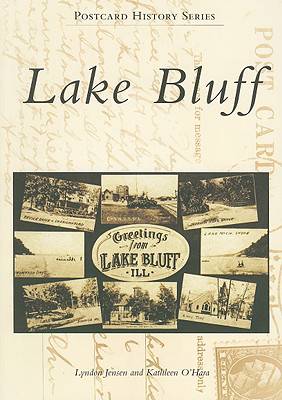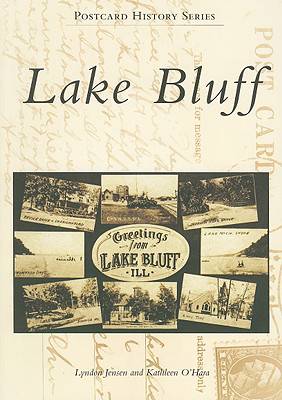
- Afhalen na 1 uur in een winkel met voorraad
- Gratis thuislevering in België vanaf € 30
- Ruim aanbod met 7 miljoen producten
- Afhalen na 1 uur in een winkel met voorraad
- Gratis thuislevering in België vanaf € 30
- Ruim aanbod met 7 miljoen producten
Zoeken
Omschrijving
The shores of Lake Michigan, with towering bluffs and heavily wooded ravines, have attracted many to Lake Bluff during the past two centuries. The Potawatomis were the first to come, using the ravines for their tribal council meetings. The German and Irish came in the 1830s, drawn by the cheap land prices. The 1870s brought the Methodists, who, seeing the beauty of the lake and the ravines, purchased 200 acres and formed the Lake Bluff Camp Meeting Association. The summer chautauqua brought thousands of visitors every year to its quaint cottages and hotels. It was in Lake Bluff where Frances Willard, president of the Women's Christian Temperance Union, brought together other temperance leaders to form the national Prohibition party, which led to the ill-fated 18th Amendment. In the 20th century, Lake Bluff has retained its charming cottages and tree-lined village streets. It remains today a picturesque and historic northern suburb of Chicago, nestled along the shores of Lake Michigan.
Specificaties
Betrokkenen
- Auteur(s):
- Uitgeverij:
Inhoud
- Aantal bladzijden:
- 128
- Taal:
- Engels
- Reeks:
Eigenschappen
- Productcode (EAN):
- 9780738552101
- Verschijningsdatum:
- 25/06/2008
- Uitvoering:
- Paperback
- Formaat:
- Trade paperback (VS)
- Afmetingen:
- 165 mm x 234 mm
- Gewicht:
- 317 g

Alleen bij Standaard Boekhandel
+ 61 punten op je klantenkaart van Standaard Boekhandel
Beoordelingen
We publiceren alleen reviews die voldoen aan de voorwaarden voor reviews. Bekijk onze voorwaarden voor reviews.











